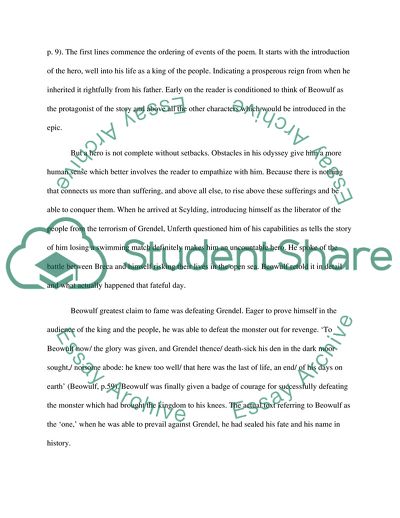Cite this document
(The Amalgamation of Literature and History in the Story of Beowulf Essay, n.d.)
The Amalgamation of Literature and History in the Story of Beowulf Essay. https://studentshare.org/literature/1736814-beowulfs-allusive-and-digressive-qualities-present-to-view-a-mass-of-half-concealed-meanings-and-allusions-that-beg-explication-fulk-discuss
The Amalgamation of Literature and History in the Story of Beowulf Essay. https://studentshare.org/literature/1736814-beowulfs-allusive-and-digressive-qualities-present-to-view-a-mass-of-half-concealed-meanings-and-allusions-that-beg-explication-fulk-discuss
(The Amalgamation of Literature and History in the Story of Beowulf Essay)
The Amalgamation of Literature and History in the Story of Beowulf Essay. https://studentshare.org/literature/1736814-beowulfs-allusive-and-digressive-qualities-present-to-view-a-mass-of-half-concealed-meanings-and-allusions-that-beg-explication-fulk-discuss.
The Amalgamation of Literature and History in the Story of Beowulf Essay. https://studentshare.org/literature/1736814-beowulfs-allusive-and-digressive-qualities-present-to-view-a-mass-of-half-concealed-meanings-and-allusions-that-beg-explication-fulk-discuss.
“The Amalgamation of Literature and History in the Story of Beowulf Essay”. https://studentshare.org/literature/1736814-beowulfs-allusive-and-digressive-qualities-present-to-view-a-mass-of-half-concealed-meanings-and-allusions-that-beg-explication-fulk-discuss.


